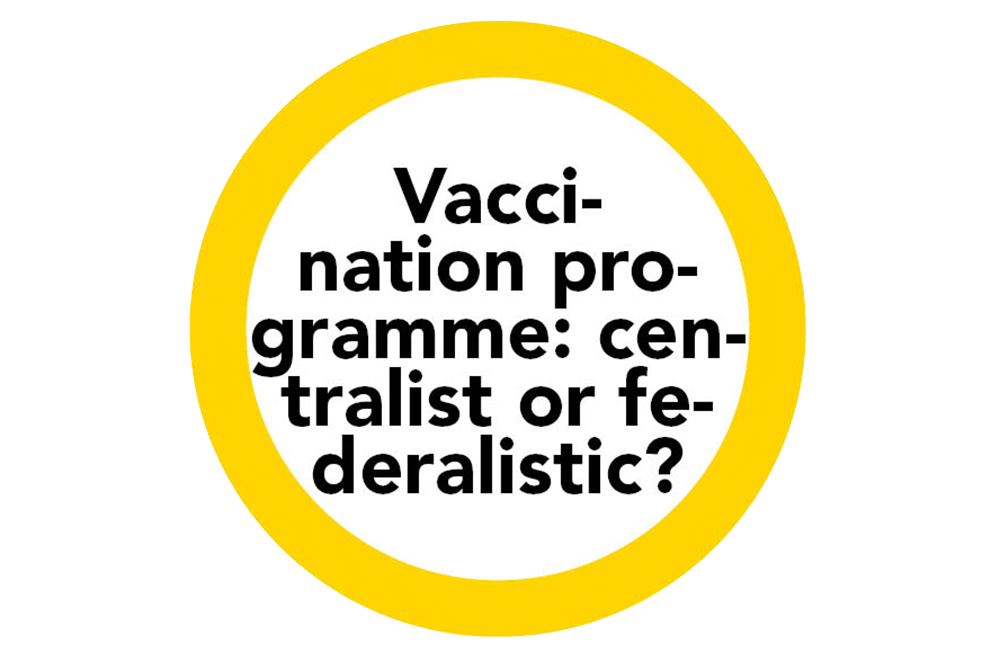Who coordinates what when and how? The Covid-vaccination has led to an intense discussion about competences. Klaus Poier, political scientist at the University of Graz, analyses: Centralism or federalism – which is more effective for a vaccination programme?
Clip (German only)
Klaus Poier: “It made sense for the EU to source vaccines jointly for all member states. Planning the vaccination rollout and who should be first in the queue, are matters better settled at national level. On the other hand, the actual vaccinations are best organised at regional and local levels, since it makes a significant difference whether there is scope to create large-scale, centralised vaccination centres in a city or whether the vaccinations have to be delivered over a wider area in a non-city state.
This approach follows the idea (the principle) of subsidiarity: as much as possible should be organised at the lower level, close to citizens, and the higher-ranking level should only be used for matters that cannot be accomplished as effectively at a lower level.
Mistakes can and do happen at any level, as we know. But it is very unlikely that any other allocation of responsibilities would have resulted in fewer errors – quite the opposite, there would probably have been more.”
